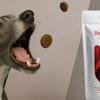
In Oregon, a man filed a lawsuit against Wild Coast Pet Foods, a company based in Olympia, Washington, U.S.A., as reported by Legal Reader. The lawsuit alleges that the cat was infected with highly pathogenic avian influenza (HPAI) after eating contaminated raw pet food.
The four-year-old cat, Kira became ill in early February, and her owner Tim Hanson, brought the cat to the veterinarian. Test results came back positive for H5N1 bird flu. Kira was euthanized as her condition worsened. Kira’s brother also exhibited signs of illness, but recovered. Both cats had eaten Wild Coast Pet Foods brand raw cat food.
The lawsuit alleges that Wild Coast Pet Foods failed to adequately warn consumers of bird flu risks associated with their raw chicken products. The lawsuit alleges that the company misled customers because it marketed its food as healthy and safe, despite the known potential for raw chicken to transmit HPAI. The plaintiffs stated that he wouldn’t have purchased the products if he had been aware of the pathogen risk.
History of Wild Coast Pet Foods recall for bird flu
In February, state investigators identified raw cat food as the likely source of HPAI infection in two Oregon house cats. Although the cats lived in different households, health officials found that the cats had consumed the same brand of raw pet food before becoming ill, Wild Coast Raw Boneless Free Range Chicken Formula with lot numbers 22660 and 22664 and a best-by date of December 2025.
The Oregon Department of Agriculture (ODA ) collected samples from the affected cats pre- and post-mortem, and from open containers of the raw pet food. Tests conducted by the Oregon Veterinary Diagnostic Laboratory (ODVL) at Oregon State University and the National Veterinary Services Laboratories (NVSL) at the U.S. Department of Agriculture confirmed the presence of HPAI in both cats and the food samples.
On March 1, Wild Coast Pet Foods recalled lots identified by a sticker on the lid with a number of #22660, #22653, #22641, #22639, #22672 and #22664 with a Best Buy date of 12/25. The recall is widened to include any raw material sharing similar production dates and lot codes as #22660 and #22664. These two lot codes were included in the WSDA’s public health alert on February 14.
24 avian influenza cases in cats detected in February 2025
For the first time since highly pathogenic avian influenza was first detected in domestic cats in 2022, a cat has been confirmed as infected east of the Appalachian Mountains. In February, the U.S. Department of Agriculture’s Animal and Plant Health Inspection Service confirmed cases of bird flu affecting domestic cats in Washington, New Jersey, Colorado, California, Kansas, New Mexico, Montana and South Dakota.
The first recorded case of bird flu in a domestic cat in the U.S. occurred in Linn County, Oregon in December 2022. Since then, cases have occurred throughout the U.S. Until February, all of these HPAI infections in domestic cats had been west of the Appalachian Mountains. These cases corresponded to the Pacific, Central and Mississippi flyway routes used by migrating birds. The cases identified in February in New Jersey occurred in the Atlantic flyway.



















